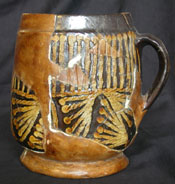 |
 |
 |
 |
 |
 |
 |
|
|
Glossary Cellarer The cellarer was one of the leading monastic
officials (or obedientiaries), and was chiefly responsible for
the abbey’s provisions. His duties are carefully detailed
in chapter 117 of the twelfth-century Cistercian customary, known
as the Ecclesiastica Officia. Every week the cellarer – or his deputy – received the kitchen utensils from the kitchen assistants (who helped there on a weekly basis). He counted these to make sure everything was in order and then, in accordance, with chapter 35 of the Rule of St Benedict, passed the equipment to the new weekly helpers. On Maundy Thursday, when the abbot and monks ceremoniously washed the feet of a number of poor folk, in imitation of Christ washing the disciples’ feet, the cellarer appointed several lay-brothers to prepare and bring warm water and towels to the cloister. On Good Friday, the cellarer put warm water in the cloister after the liturgy of the altars, and made sure that the lay-brothers cleaned the church, the cloister and the chapter-house. On account
of his responsibilities and the nature of his duties, concessions
were made to the cellarer. For example, he was permitted
to speak with lay-brothers, servants and visitors, he might leave
the refectory when eating and the dormitory when the others were
asleep; he was permitted to miss certain Offices in the church
if he was busy attending to his duties. |
